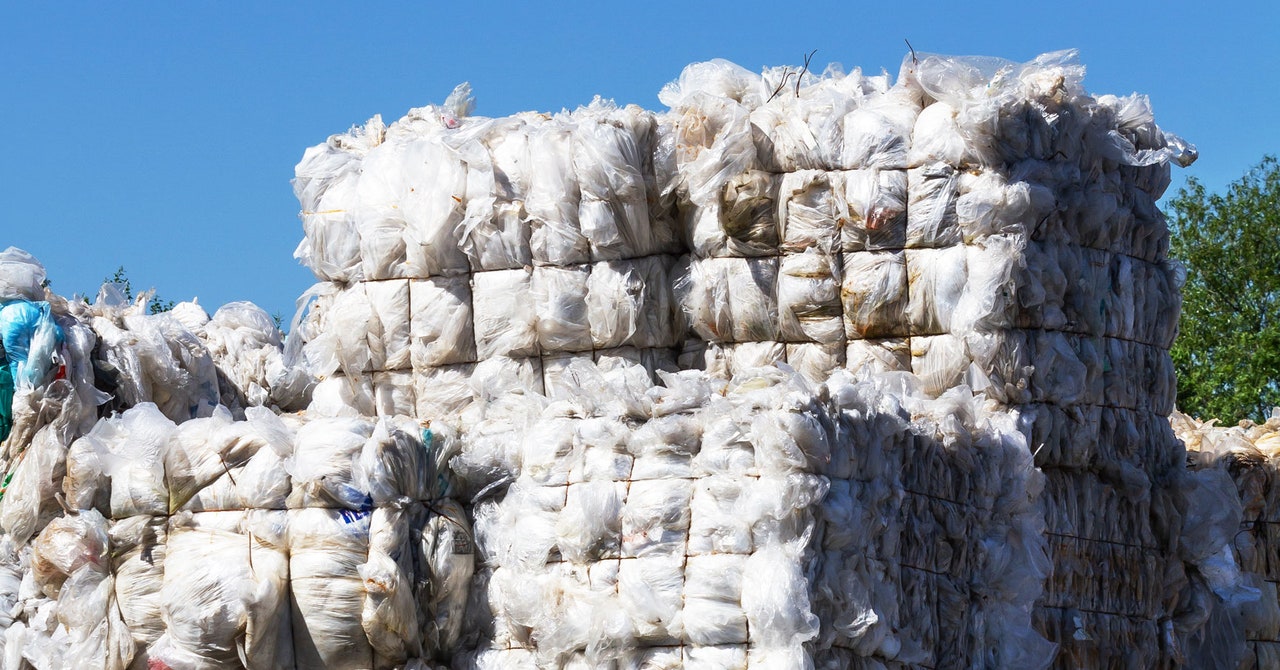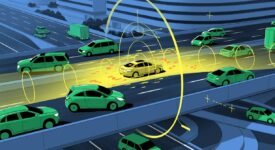
But a critical caveat is that the team only tested for microplastics down to 1.6 microns. Plastic particles can get way smaller—like nanoplastics that are tiny enough to enter individual cells—and they grow much more numerous as they do. So this is likely a significant underestimate. And these researchers were finding a lot of particularly small particles. In two of the sample points, approximately 95 percent of the microplastics were under 10 microns, and 85 percent were under 5 microns. “It completely shocked me just how tiny the majority of them were,” says Brown. “But we easily could have found so many smaller than that.”
Depending on the recycling facility, that wastewater might next flow to a sewer system and eventually to a treatment plant that is not equipped to filter out such small particles before pumping the water into the environment. But, says Enck, “some of these facilities might be discharging directly into groundwater. They’re not always connected to the public sewer system.” That means the plastics could end up in the water people use for drinking or irrigating crops.
The full extent of the problem isn’t yet clear, as this pilot study observed just one facility. But because it was brand-new, it was probably a best-case scenario, says Steve Allen, a microplastics researcher at the Ocean Frontiers Institute and coauthor of the new paper. “It is a state-of-the-art plant, so it doesn’t get any better,” he says. “If this is this bad, what are the others like?”
These researchers also found high levels of airborne microplastics inside the facility, ready for workers to inhale. Previous research has found that recycled pellets contain a number of toxic chemicals, including endocrine-disrupting ones. Plastic particles can be dangerous to human lung cells, and a previous study found that laborers who work with nylon, which is also made of plastic, suffer from a chronic disease known as flock worker’s lung. When plastics break down in water, they release “leachate”—a complex cocktail of chemicals, many of which are hazardous to life.
Recycling a plastic bottle, then, isn’t just turning it into a new bottle. It’s deconstructing it and putting it back together again. “The recycling centers are potentially making things worse by actually creating microplastics faster and discharging them into both water and air,” says Deonie Allen, a coauthor of the paper and a microplastics researcher at the University of Birmingham. “I’m not sure we can technologically engineer our way out of that problem.”
Recycling is also a game of diminishing returns. A plastic bottle is easy enough to process, but you can only do that a few times before the material degrades too much to be recycled again. And as plastic products have gotten more complex—multilayered pouches for baby food, for instance—they’ve gotten harder to recycle. The industry’s literal dirty secret is that mountains of plastic waste are being shipped to economically developing countries, where the stuff is often burned in open pits, poisoning surrounding communities and sending still more microplastics and chemicals into the atmosphere. If recycling was actually effective in its current form, the industry wouldn’t have to keep producing exponentially more plastic—it’s now churning out a trillion pounds a year.
Still, researchers like Brown don’t think that we should abandon recycling. This new research shows that while filters can’t stop all the microplastics from leaving a recycling facility, they at least help substantially. “I really don’t want it to suggest to people that we shouldn’t recycle, and to give it a completely negative reputation,” she says. “What it really highlights is that we just really need to consider the impacts of the solutions.”
Scientists and anti-pollution groups agree that the ultimate solution isn’t relying on recycling or trying to pull trash out of the ocean, but massively cutting plastic production. “I just think this illustrates that plastics recycling in its traditional form has some pretty serious problems,” says Enck. “This is yet another reason to do everything humanly possible to avoid purchasing plastics.”
Update 5-5-2023 12:20 pm ET: This story was updated to add a comment from the Association of Plastic Recyclers.


